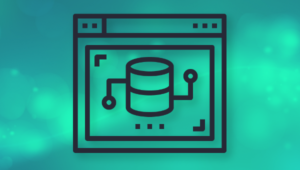In this article, we’ll walk through the process of converting a JSON string into an SQL Query so that your data can be inserted into a database.
Anatomy of JSON Objects and SQL Queries
Here’s an example of a JSON object:
{
"name": "John",
"age": 30,
"city": "New York"
}
In the code above, we have a JSON object with three attributes: name, age, and city. Each attribute has a corresponding value.
Here’s an example of an SQL query:
SELECT * FROM users WHERE age > 18;
In this example, we’re selecting all records from the users table where the age is greater than 18.
How to Convert a JSON String to a JSON Object and then into an SQL Query
To convert a string to JSON and then into an SQL query, we need to follow these steps:
- Parse the JSON string into a JSON object
- Extract the values from the JSON object
- Build an SQL query using the extracted values
Let’s go through each step in detail.
Parse the string into a JSON object
To parse the string into a JSON object, we can use the JSON.parse() method. This method takes a string as input and returns a JSON object:
const jsonString = '{"name":"John","age":30,"city":"New York"}';
const jsonObj = JSON.parse(jsonString);
console.log(jsonObj);
In this example, we have a JSON string and we’re using the JSON.parse() method to parse it into a JSON object. The output of this code will be as follows:
{
"name": "John",
"age": 30,
"city": "New York"
}
Extract the values from the JSON object
Once we have the JSON object, we need to extract the values from it. We can do this by accessing the properties of the JSON object like so:
const name = jsonObj.name;
const age = jsonObj.age;
const city = jsonObj.city;
console.log(name, age, city);
In this example, we’re extracting the values of the name, age, and city properties from the JSON object. The output of this code will be as follows:
John 30 New York
Build a SQL query using the extracted values
Now that we’ve extracted the values from the JSON object, we can use them to build an SQL query:
const sqlQuery = `INSERT INTO users (name, age, city) VALUES ('${name}', '${age}', '${city}')`;
console.log(sqlQuery);
In this example, we’re building an SQL query to insert a new record into the users table with the values extracted from the JSON object. The output of this code will be as follows:
INSERT INTO users (name, age, city) VALUES ('John', '30', 'New York')
Converting a JSON string into an SQL query is a common task in web development. By following the steps outlined here, you can easily work with JSON data and manipulate it so that it can be inserted into your SQL database.
Frequently Asked Questions (FAQs) on Converting JSON to SQL Query
What is the process of converting JSON to SQL Query?
Converting JSON to SQL Query involves a series of steps. First, you need to parse the JSON data. This can be done using various programming languages such as Python, JavaScript, or PHP. Once the JSON data is parsed, you can then convert it into SQL query format. This involves creating a SQL statement that corresponds to the JSON data. The SQL statement can then be executed in a SQL database to insert, update, or retrieve data.
Can I convert JSON to SQL Query using SQL Server?
Yes, SQL Server provides built-in functions for handling JSON data. You can use the OPENJSON function to convert JSON data to a rowset, and then insert the data into a SQL Server table. You can also use the FOR JSON clause to output query results as JSON data.
How can I use the OPENJSON function in SQL Server to convert JSON to SQL Query?
The OPENJSON function in SQL Server allows you to transform JSON data into a tabular format, which can then be used in a SQL query. The function takes two parameters: the JSON text, and an optional schema that defines the structure of the output. The schema is defined using the WITH clause, and it specifies the name, type, and location of each column in the output.
What is the role of the FOR JSON clause in SQL Server?
The FOR JSON clause in SQL Server is used to format the results of a SQL query as JSON data. This can be useful when you want to return data from a SQL Server database in a format that can be easily consumed by a JavaScript application, for example.
Are there any online tools that can convert JSON to SQL Query?
Yes, there are several online tools that can convert JSON data to SQL query. These tools typically allow you to paste your JSON data into a text box, and then they generate a corresponding SQL query. Some of these tools also provide options for customizing the output, such as choosing the SQL dialect, formatting the SQL code, and specifying the table name.
Can I convert JSON to SQL Query using Python?
Yes, Python provides several libraries for handling JSON data, such as json and pandas. You can use these libraries to parse the JSON data, convert it into a pandas DataFrame, and then generate a SQL query.
How can I handle complex JSON data when converting it to SQL Query?
Complex JSON data, such as nested arrays or objects, can be handled by using a recursive function or a JSON path expression. These methods allow you to traverse the JSON data structure and extract the necessary information.
Can I convert JSON to SQL Query in a NoSQL database?
NoSQL databases, such as MongoDB, use JSON-like documents to store data. However, they do not support SQL queries natively. There are tools and libraries available that can convert SQL queries to the query language used by the NoSQL database, but this is not a straightforward process and may not be suitable for all use cases.
What are the potential issues when converting JSON to SQL Query?
There are several potential issues when converting JSON data to SQL query. One issue is data type mismatch, where the data type in the JSON data does not match the data type in the SQL database. Another issue is data loss, where some information in the JSON data is not captured in the SQL query. A third issue is performance, as parsing JSON data and generating SQL queries can be computationally intensive.
How can I optimize the process of converting JSON to SQL Query?
There are several ways to optimize the process of converting JSON data to SQL query. One way is to use a streaming JSON parser, which can parse the JSON data incrementally and reduce memory usage. Another way is to use a prepared statement, which can speed up the execution of the SQL query. A third way is to use a bulk insert operation, which can insert multiple rows of data into the SQL database at once.
 SitePoint Team
SitePoint TeamSharing our passion for building incredible internet things.






